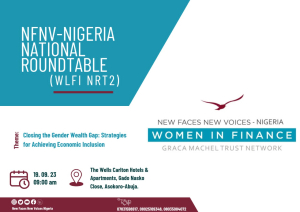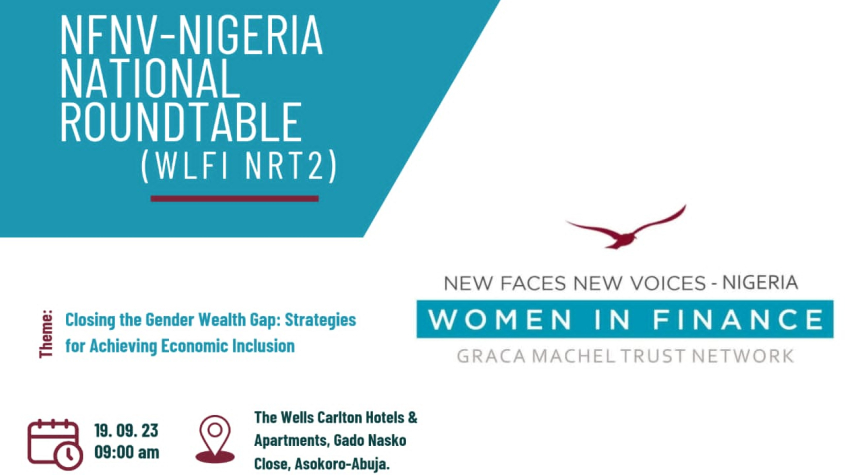Count down begins for NFNV-Nigeria’s 2nd national roundtable on closing wealth-gender gap
New Faces, New Voices (NFNV-Nigeria), which focuses on expanding the role and influence of women in the financial sector, is set to hold its second national roundtable on the wealth-gender gap in Nigeria next Tuesday in Abuja, Nigeria.

The roundtable, which is themed “Closing Wealth Gender Gap: Strategies for Achieving Economic Inclusion”, is part of the second phase of NFNV Nigeria’s Women Leadership and Financial Inclusion (WLFI) project. The convening is poised to assess the financial inhibitors of the wealth gap in Nigeria and identify, propose and assess policies and programs for closing wealth gaps in Nigeria.
It will be recalled that in March 2022, NFNV-Nigeria convened its first national roundtable to critically assess the financial and economic ecosystem in women’s path to business recovery post-COVID-19. The roundtable was an outcome of the convening of a high-level Expert Group of African Women Leaders (ELG) in the finance sector by the Graça Machel Trust (GMT).
A press statement by NFNV Nigeria says the hybrid roundtable will have in attendance government representatives, leaders in the financial and economic sectors, the private sector and business/trade support institutions.
“The 2023 World Economic Forum survey puts Nigeria in the 130th position for the gender gap, and this is invariably a setback in respect to achieving the Sustainable Development Goals, in particular Goal Five (Gender equality) and Goal Eight (Decent work and economic growth).
“Nigeria’s economic growth has been hampered negatively as a result of economic and social institutional challenges in recent years. This has resulted in 133 million people who are in a multidimensional poverty trap and caused economic inequalities and a big chasm in the wealth-gender gap despite being the largest economy,” the statement read.
Amongst others, the roundtable will examine the socio-economic ecosystem in fostering gender-sensitive public and private policies for achieving Sustainable Development Goals (SDG) 5 and 8 and propose actions to ensure functional and implementable strategies for economic inclusion in Nigeria.
















